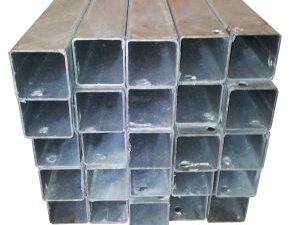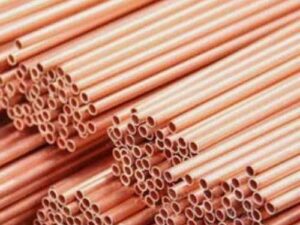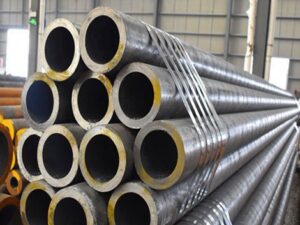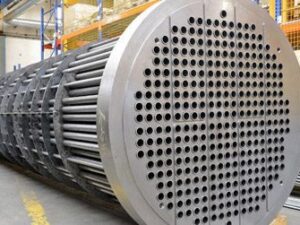Description
The Unsung Heroes of Industry: Examining the Strength and Versatility of High-Pressure Steel Pipes
In the intricate web of modern industry, many components contribute silently and reliably to the efficient operation of countless processes. Among these unsung heroes are high-pressure steel pipes, the robust arteries that safely transport critical fluids and gases under extreme conditions. From the depths of oil and gas extraction to the intricate networks of power generation plants, these pipes play a vital role in powering our world.
Built for the Challenge: Understanding High Pressure Environments
High-pressure environments demand materials capable of withstanding immense force without deformation or failure. Steel, renowned for its strength, durability, and versatility, emerges as the material of choice for these demanding applications. The specific type of steel used in high-pressure pipes is carefully selected based on factors like the operating pressure, temperature, and the properties of the substances being transported.
Key characteristics that contribute to the suitability of steel for high-pressure applications include:
- High Tensile Strength: Steel’s ability to resist stretching and breaking under tension is crucial for preventing catastrophic failure.
- Yield Strength: This measures the stress at which steel begins to deform permanently. High yield strength ensures the pipe maintains its shape under pressure.
- Ductility: This refers to steel’s ability to deform under stress without fracturing. Ductility allows the pipe to absorb impact and pressure fluctuations, enhancing its resilience.
- Corrosion Resistance: Depending on the application, specialized steel alloys are chosen for their resistance to corrosion from transported fluids or the surrounding environment.
A Variety of Applications: Where High-Pressure Steel Pipes Shine
The versatility of high-pressure steel pipes is evident in their widespread use across diverse industries:
- Oil and Gas: From extracting crude oil and natural gas from deep underground reservoirs to transporting them across continents, these pipes are essential for the energy sector. They withstand the immense pressure encountered in drilling operations and pipeline networks.
- Power Generation: In power plants, high-pressure steam is used to drive turbines and generate electricity. High-pressure steel pipes safely contain and transport this steam at extreme temperatures and pressures.
- Chemical Processing: Chemical plants rely on these pipes to transport a wide range of corrosive and hazardous chemicals under pressure, ensuring safe and efficient chemical reactions.
- Hydraulic Systems: Heavy machinery and industrial equipment depend on hydraulic systems to generate force and control movement. High-pressure steel pipes are vital for conveying hydraulic fluids to actuators and cylinders.
- Water Treatment: In sophisticated water treatment facilities, high-pressure steel pipes are used to transport water through filtration and purification processes, ensuring a clean and safe water supply.
Ensuring Safety and Reliability: Quality Control and Maintenance
Given the critical role of these pipes, rigorous quality control measures are implemented during manufacturing and installation. This includes:
- Material Testing: Samples of the steel are subjected to extensive testing to verify their mechanical properties and chemical composition.
- Non-Destructive Testing (NDT): Techniques like ultrasonic testing and radiographic inspection are used to detect any internal flaws or defects without damaging the pipe.
- Hydrostatic Testing: Prior to commissioning, the pipes are subjected to hydrostatic testing, where they are filled with water and pressurized to levels exceeding their operating pressure to verify their integrity.
Regular maintenance and inspection are equally crucial for ensuring the continued safety and reliability of high-pressure steel pipe systems. This includes:
- Visual Inspections: Regularly checking for signs of corrosion, leaks, or physical damage.
- Thickness Measurement: Monitoring the wall thickness of the pipe to detect any thinning due to corrosion or erosion.
- Pressure Testing: Periodically conducting pressure tests to verify the pipe’s ability to withstand operating pressures.
Looking to the Future: Innovations in High-Pressure Pipe Technology
The field of high-pressure steel pipe technology continues to evolve, with ongoing research and development focused on enhancing performance, durability, and safety. Some key areas of innovation include:
- Advanced Steel Alloys: Development of stronger, more corrosion-resistant steel alloys to handle increasingly demanding applications.
- Improved Welding Techniques: Refining welding processes to create stronger and more reliable joints.
- Enhanced Monitoring Systems: Implementing advanced sensor technologies to provide real-time monitoring of pressure, temperature, and other critical parameters.
In conclusion, high-pressure steel pipes are indispensable components of modern industry, playing a crucial role in safely and efficiently transporting vital resources. Their strength, durability, and versatility make them the ideal choice for demanding applications across a wide range of industries. By understanding their importance and continuing to invest in research and development, we can ensure the continued reliability and safety of these unsung heroes for generations to come.










Reviews
There are no reviews yet.